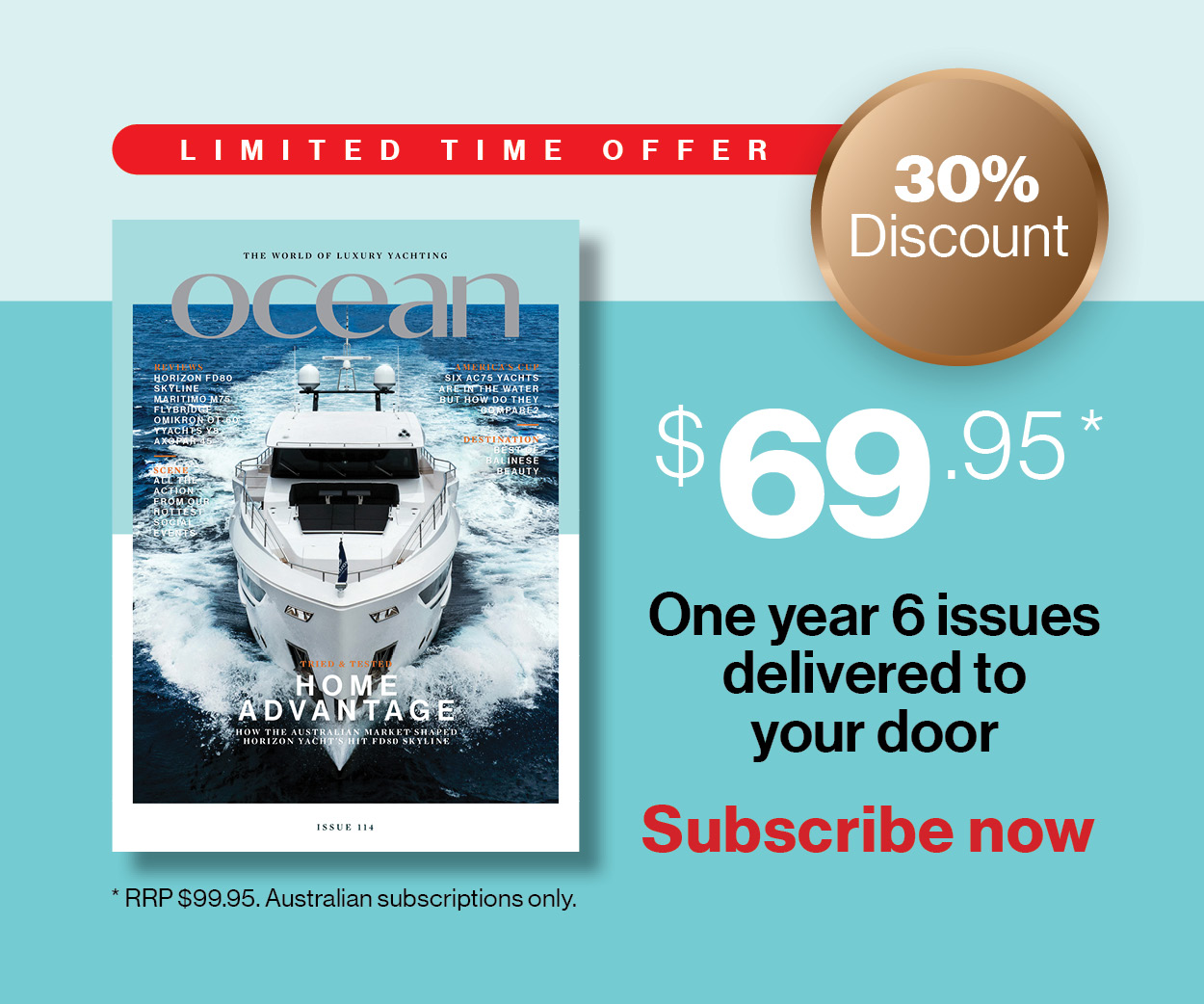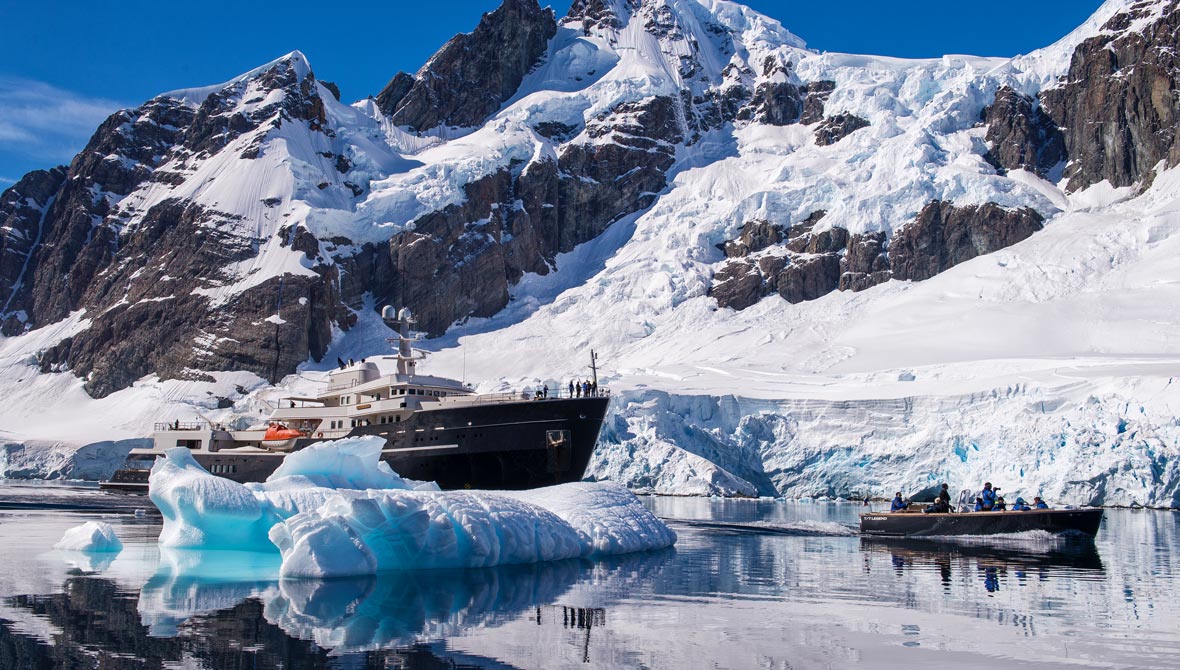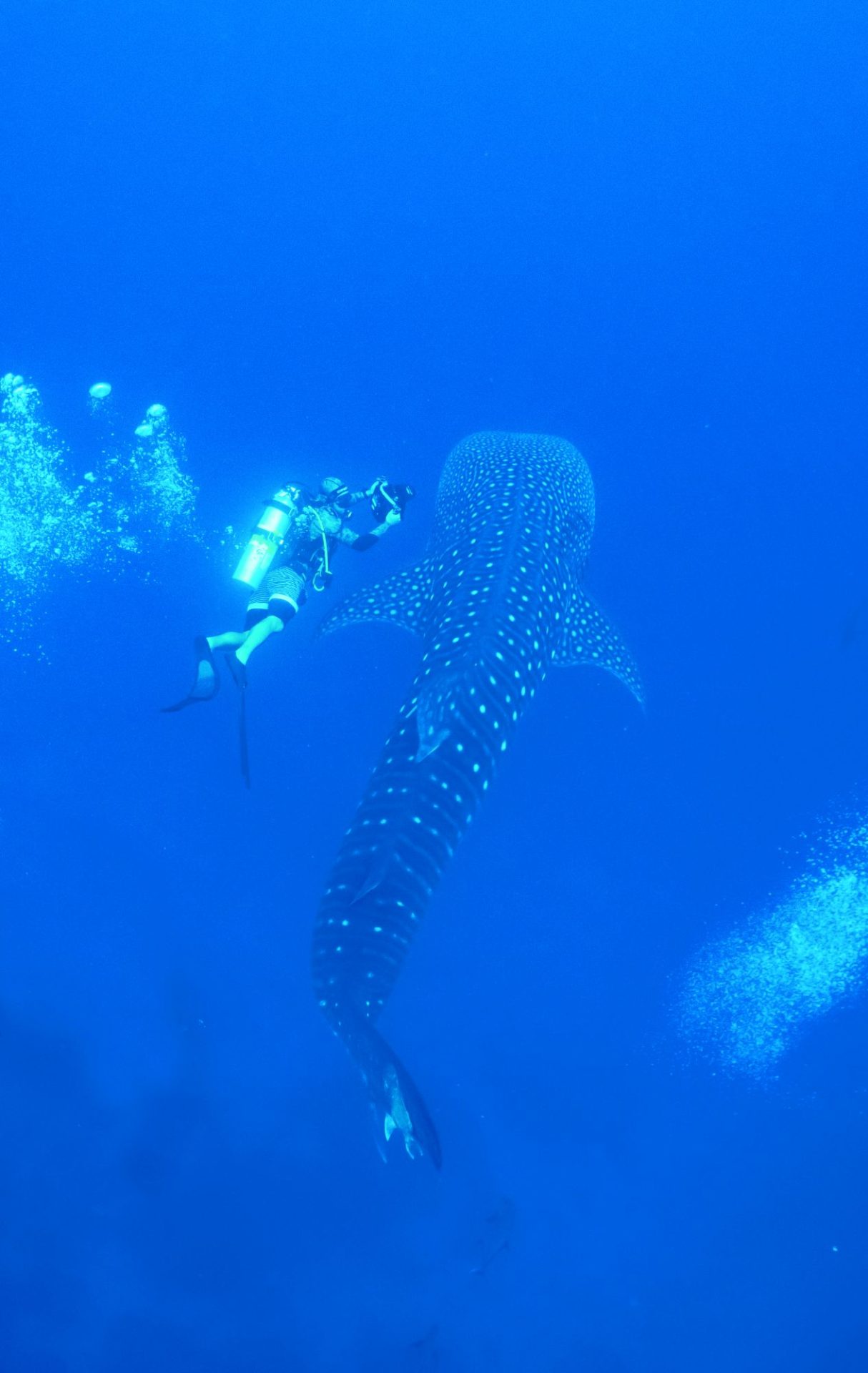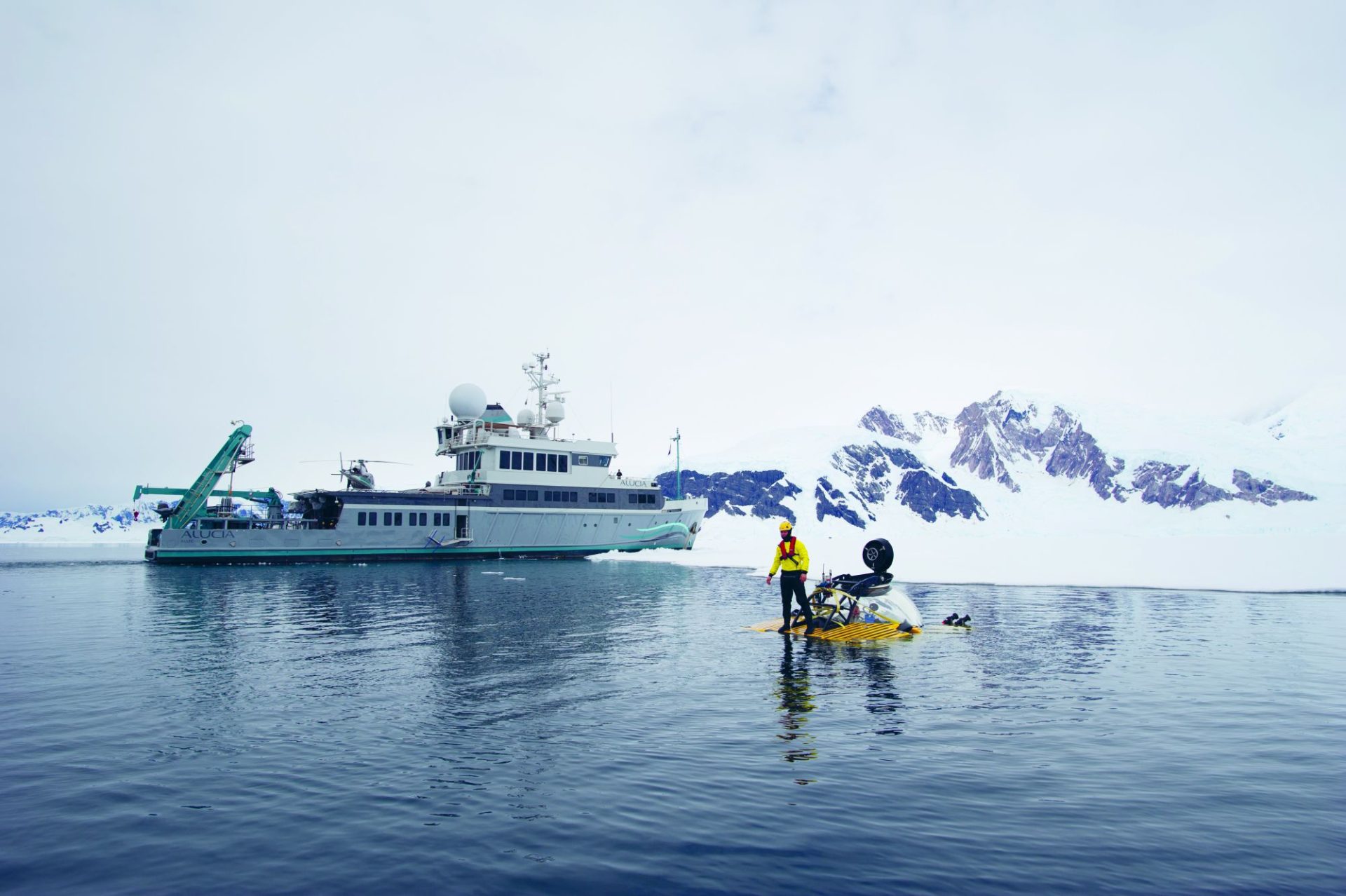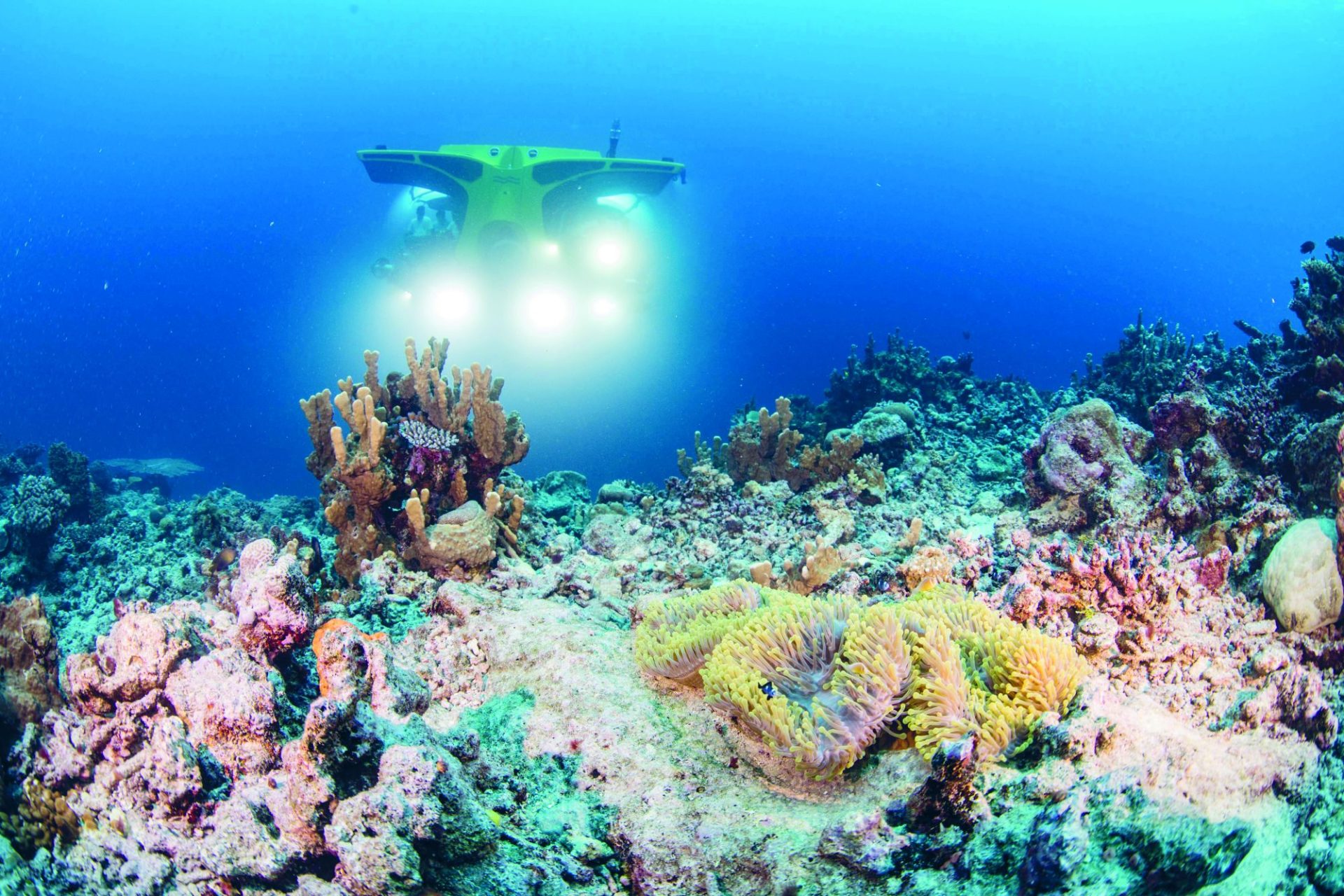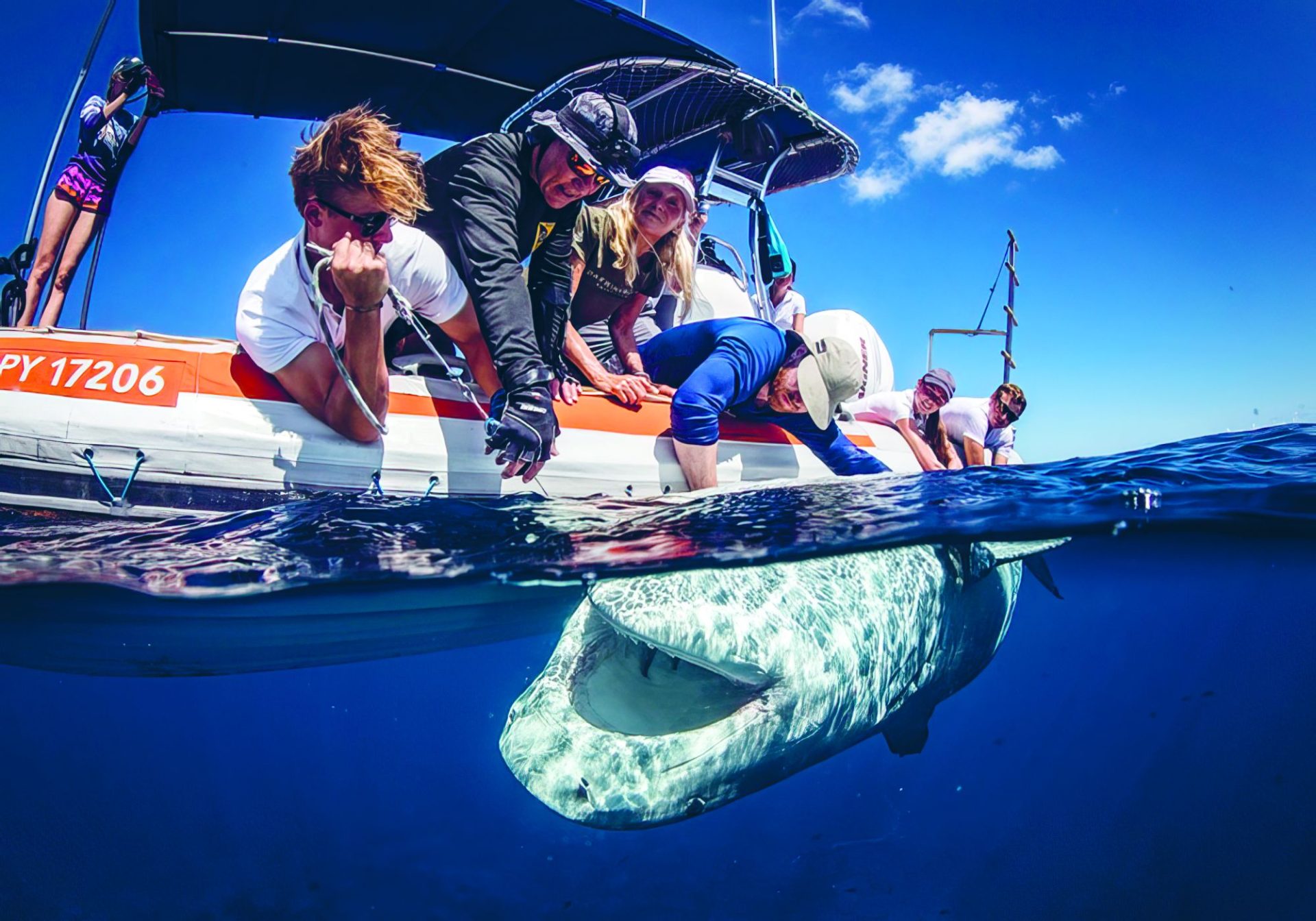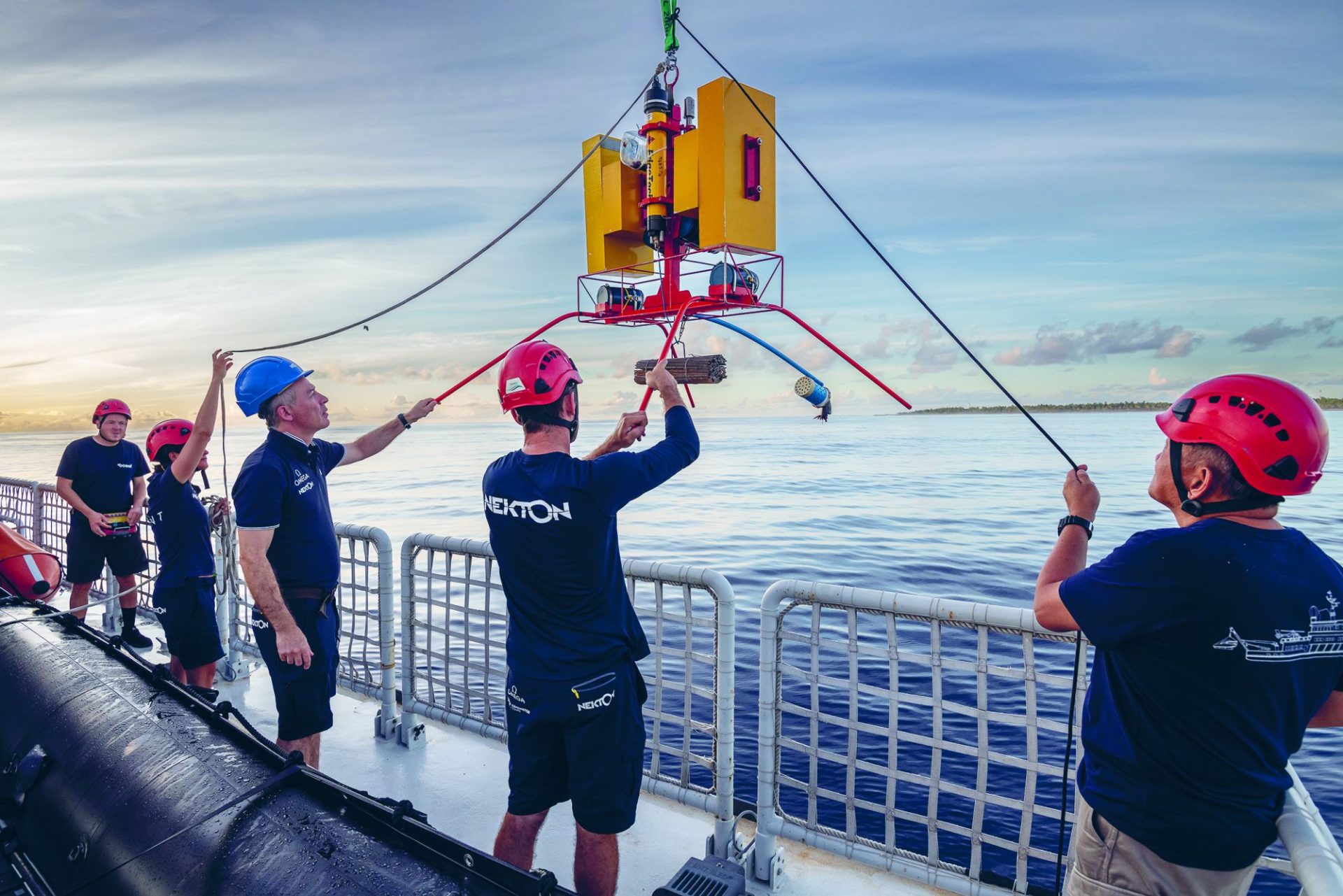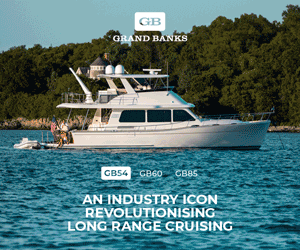Cruising with purpose
Earlier this year, we took a close look at cruising intentionally. Now, we consider the other side of ocean philanthropy – science and conservation – and some of the initiatives yachts and yachties can get hands-on with.
Written by Charlotte Thomas
15 November 2023
From the Blue Marine Foundation to the Living Oceans Foundation and the superyacht industry’s own non-profit Water Revolution Foundation, ocean science, conservation and research are increasingly taking centre stage.
It’s hardly surprising – our oceans act as the planet’s lungs, creating more oxygen than all the world’s forests and grasslands combined and absorbing more than 30 percent of the planet’s CO2. It’s even more important for the yacht industry and yacht owners because the oceans are not only a means of transport – they are our playgrounds. It’s in our interests to protect them.
That, however, does not just mean passively making contributions to non-profits and letting them get on with it – although carefully researched and targeted donations can make a difference.
Rather, we have something far more valuable at our disposal that can make science and conservation far more engaging for us, our families and our friends – our yachts can facilitate research and data gathering.
The idea of cruising with purpose when it comes to ocean science and conservation is not new but is growing. It can be seen in the increasing numbers of yachts and superyachts being built specifically with such projects in mind.
For example, take billionaire philanthropist Ray Dalio and his son Mark, whose OceanX non-profit draws on their specially equipped yacht Alucia and, more recently, the 87-metre ocean research vessel OceanXplorer that was specifically developed to push boundaries in ocean exploration.
Similarly, a project at Icon named Project Master is taking a 66-metre offshore rescue-and-support vessel and converting it into a luxury superyacht with intent – there’s a lab purpose-built for science and conservation experts to come on board.
“It’s really exciting – the fabric of what we’re trying to do is to include engagement with conservation and science into all our trips,” says Nick Davies, Managing Director of Cookson Adventures, which is applying their extensive expertise to the project. “It really gives clients an understanding of the world, and it gives their trips meaning and purpose – it’s very special being able to do that.”
Then there are people like Wendy Schmidt, herself a sailing superyacht owner but whose charitable Schmidt Ocean Institute – just one of many non-profit philanthropic arms of the Schmidt Family Foundation – offers scientists, researchers and collaborators free time aboard their extensively equipped 110-metre ocean research vessel Falkor (too).
“Sharing our laboratories, computing and communication facilities aboard R/V Falkor is the first step in creating a new kind of collaborative marine science community,” enthuses Schmidt.
That yachts make superb platforms for research is evident in the fact that they frequently visit corners of the world far from commercial shipping routes, and the fact that a percentage of the fleet undertakes extended global cruising means valuable data for everything from marine wildlife surveys to climate models. It’s something that adventure and experiential travel companies such as Cookson Adventures, Pelorus and EYOS Expeditions have seen growing demand for as part of an owner cruise or charter experience.
“It was always the way that we would encourage our clients to get involved with certain projects,” says Geordie Mackay-Lewis, Co-founder and CEO of Pelorus, which now has a dedicated non-profit wing called the Pelorus Foundation.
“If we were taking someone to Greenland on a yacht, for example, we’d point out any amazing environmental initiatives in the area. When we started, it was gentle nudges – now it’s almost mandatory for a Pelorus yacht expedition that is going to an interesting part of the world to take part in something.”
The idea of contributing not money but time and resources to ocean science and conservation is also starting to catch on with new yacht concepts and ownership models. It’s something that tech entrepreneur Jasper Smith put front and centre of Arksen, which centres on the idea of sustainable adventure cruising with capable pocket explorer yachts up to 27.3 metres, but which also asks owners of Arksen yachts to sign the Sea Time Pledge, which guarantees a set amount of time per year that the yacht will be used for science, research and philanthropic activities.
“If you look closely at the industry, you’ll see it’s got great heart and great soul – and it’s taking significant steps to work toward the betterment of the oceans,” Smith states. “And the clients are some of the most influential people on the planet who have the money, the wherewithal and the willpower to help in all sorts of ways.”
Smith says that many wealthy owners feel a responsibility to look after the oceans, and those who are seeking the capabilities as well as the opportunities for adventure cruising, and expeditions in particular, are passionate about them. “With that audience, there’s a tremendous buy-in to the boat being for more than just their own purposes,” he continues.
“We ask all owners to sign our pledge. They might use their vessel to go to the Mediterranean for a few days, but then they could go off and do a fish survey in Newfoundland or some conservation work in Southern Chile.”
The pledge was inspired by the fact that ocean-related causes only get a tiny percentage of philanthropic spending, but the rewards for owners go beyond just the satisfaction of having made a direct difference in a critically important area.
As one Arksen owner reports, “We have a raft of scientific programs we’re trying to fit in with our itinerary, which are all vetted by Dr Lucy Woodall at Oxford University. We have scientists interested in coming on board to track and study the Type C orca population in Antarctica and the Southern Ocean, which would be fascinating to be involved in.”
Arksen is one of the founding partners of the Yachts for Science initiative, along with Boat International, EYOS Expeditions, Nekton and the Ocean Family Foundation. Yachts for Science aims to be a matchmaker between scientists hoping to undertake research in various pockets of the oceans with yachts and superyachts willing to host them, and stands as an example of how both the industry and yacht owners alike are working in a more symbiotic way to enable crucial research that could help change the future of the planet.
It’s not the only initiative – the International SeaKeepers Society, based in Florida, is also highly active in the field with its Discovery Yachts program that marries yachts with projects both short and longer-term.
“The new wave of environmental conservation coming from those with wealth and influence is due to the fact that they are waking up to the dire situation we’ve found ourselves in,” says Tony Gilbert, Chief Program Officer at International SeaKeepers. “At this point, it’s impossible to ignore. It’s no longer a political issue – it’s a global issue, based on facts and scientific data.”
The Discovery Yachts fleet includes yachts from owners such as tech mogul Michael Saylor, private equity firm Co-founder Jack McClurg, and the Feadship yacht Archimedes, which is engaged in ongoing research charting the ocean floor in the remote areas it has been cruising.
Yachts have also been gathering data off the beaten (ocean) track, which is starting to inform and improve climate models. These are actions that have significant implications for our understanding of the ocean environment and the health of the planet itself.
Similarly, there are new initiatives for ocean monitoring and marine mammal tracking that are specifically targeted at yachts. One initiative is YachtAid Global’s Operation Swimway, which has partnered with Tahiti Private Expeditions. “We started Operation Swimway in 2018,” says Zoran Selakovic, Global Director of Operations at YachtAid Global (YAG).
“There’s a worldwide goal to protect 30 percent of the oceans by 2030, and it was established by the science community to not just protect what we have but to reverse the loss of biodiversity we’ve experienced in the last 20 to 30 years.”
Operation Swimway’s premise is simple – it’s all very well to create protected areas and marine reserves around important breeding, pupping and hunting grounds for large pelagics, but it’s rendered useless when those same pelagics migrate – their migratory routes are called swimways – and get slaughtered 40 miles offshore.
“So, the goal of Operation Swimway is to help identify these migratory routes, and that’s where the yachting community is stepping in, helping to accelerate connecting large national parks to make international parks,” he explains.
Yacht owners help with investments, but they’re also getting more involved on a practical front, he says. “What helps is that we make them aware of how they can do that,” he continues.
“A number of them also happen to be around to see the work firsthand, and that’s also compelling. We try to organise these citizen science experiences, combining science teams and YAG scientists’ skill sets, aboard a yacht. Some owners are very passionate divers and conservationists, and when they get to partake in science activities, they really start to understand animal behaviours and learn intricate details they wouldn’t otherwise learn.”
Then there’s the fact that, as is often quipped, we know more about the surface of the moon than the depths of the oceans – something that inspired the philanthropic Nippon Foundation and the Nekton Foundation charity to launch a new initiative earlier in 2023. Called the Ocean Census, it has a simple aim – to speed up the discovery of new marine species before they’re lost forever.
“We’re setting out on a romantic adventure filled with passion and dreams,” says Yohei Sasakawa, Chairman of The Nippon Foundation. “Although there are close to 200 separate countries, there is only one single ocean, and it’s a common asset of all humankind – the ocean is a fundamental element for our co-prosperity.”
And there’s another good reason for doing this. Marine organisms can hold the secrets to completely new biochemistry that could play a vital role in medical developments. “It could be new anti-cancer agents or anti-viral drugs,” explains Professor Alex Rogers, Ocean Census Science Director. “And a new painkiller has just been found in a marine snail.
“There’s a huge library of biochemicals out there in the ocean that we’ve only scratched the surface of – it’s a four-billion-year library of solutions to problems we face as humans, so as we lose species, we’re losing parts of that enormous library of information.”
While the program itself is far-reaching and aims to tap into action from all walks of life, there’s no doubt that yachts, once again, can play a vital role in the project.
“The truth is, it’s science that really motivates superyacht owners these days,” concludes Rob McCallum, Founding Partner of EYOS Expeditions. “And Ocean Census is the most fantastic opportunity we’ve had to date to better understand the complexity of life in our oceans.
“This will bring a huge group of people together to provide the conduit of knowledge that will expand our understanding of the oceans. What we understand, we care for – and what we care for will last us into the future.”


